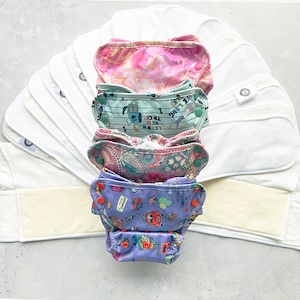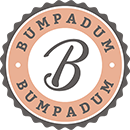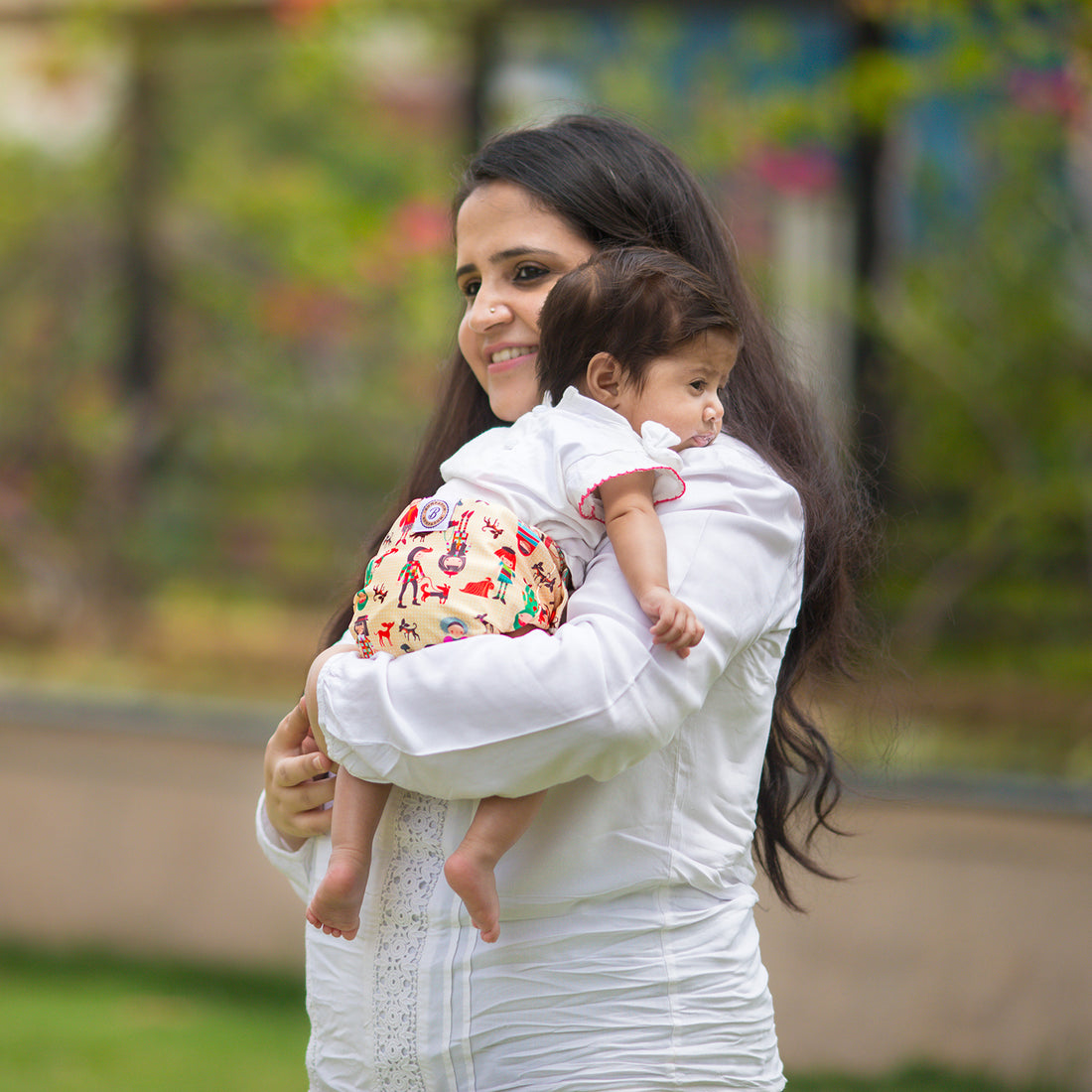
Breastfeeding is not just a source of nutrition for young ones but also a great way of bonding for the mom and baby. This blog post by Sapna Krishnan, Founder of Breastfeeding Bonds throws light on the importance of breastfeeding and dispels some very common myths around breastfeeding. Sapna is a lactation education counsellor (CLEC) , University of California (UCSD) and extremely passionate about helping moms have a beautiful breastfeeding journey with their babies.
Why is breastfeeding important?
Breast milk provides the ideal nutrition for babies. It has a nearly perfect mix of vitamins, protein, and fat -- everything your baby needs to grow. All this is provided in a form more easily digested than infant formula. Breast milk contains antibodies that help your baby fight off viruses and bacteria. Breastfeeding lowers your baby's risk of having asthma or allergies. Babies who are exclusively breastfed for the first 6 months, have fewer ear infections, respiratory illnesses, and fewer instances of diarrhoea.
Breastfeeding has also been linked to higher IQ scores in later childhood in some studies. Along with breastfeeding the physical closeness, skin-to-skin touching, and eye contact while breastfeeding your baby, all help your baby bond with you and feel secure. Breastfed infants are more likely to gain the right amount of weight as they grow rather than become overweight children.
What are the common myths around breast feeding?
There are so many myths surrounding breastfeeding
- You should eat plain food while breastfeeding
You just need to eat a balanced diet while nursing your baby.
- Exercise affects the taste of milk
Working out is good for the moms health and does not affect the supply/taste of milk
- Many mothers don't make enough milk
Most women do make enough milk. It's important to let the baby latch as much as possible for the moms body to get a signal to produce enough milk
- You should not breastfeed if you are unwell
When you are unwell, unless you are taking steroids or other non-breastfeeding friendly medicines, it is completely safe to breastfeed the baby. The baby will in fact benefit as the milk will contain antibodies that will get passed on to the baby
- Breastfed babies are clingy and won't bond with others
- If you don't wean at 1 year you won't be able to wean
Weaning can be done at any stage when the mother and child are ready. The average age of weaning is between 3.5 to 7 years of age.
- You have to wean your baby if you want to go back to work
You can pump breast milk and nurse your baby if you have to resume work. You do not need to wean your baby.
- You can't take medication if you are breastfeeding
You can take most medicines while breastfeeding. You can mention to your physician that you are breastfeeding so that he can recommend breastfeeding friendly medicines
- It is easy to breastfeed and comes naturally to women
It is natural but may not always be easy. If the baby has an incorrect latch/is unable to nurse or if mother has inverted nipples or other issues it is best to consult a LC to get guidance and support on breastfeeding
- If a mother breastfeeds, she won't be able to rest
A mother can breastfeed while lying down and get adequate rest
- You should wash your nipples before breastfeeding
The breasts are self cleaning and need not be cleaned before nursing. If you wash your breasts before nursing, the nipples may turn too dry and crack causing discomfort to the mothers.
- Breastfeeding is a good contraceptive and helps prevent future pregnancies
Breastfeeding does delay onset of periods but can't be thought of as a foolproof contraceptive. Like all contraceptive methods, there is a risk involved in engaging in unprotected sex while breastfeeding which may lead to an unwanted pregnancy.

Tips to make feeding comfortable both for mom and baby:
There are many things that can be done to ensure feeding is comfortable for both mother and baby
- Let the baby determine how often and for how long to nurse
- Sit/lie down comfortably while nursing. You can use a pillow to prop your baby
- Don't be anxious and try to relax while breastfeeding. Get to know your baby
- Help your baby latch well and find the right position while breastfeeding
- Don't worry about leaking while nursing, its normal
- Always remember that breastfeeding works on demand and supply so your body will know to produce enough milk for your baby
- Nurse often to avoid engorgement. Avoid usage of meds to increase supply or galactogogues
- Ask for help if you feel there isn't something right. Consult Lactation Counsellor who will be able to guide you the best
- Stay hydrated
- Enjoy the process of breastfeeding
Yes. A Covid Positive mother can nurse her baby by taking adequate precautions. If the mother is positive the baby is also considered as symptomatic. She can cover her mouth with a mask while breastfeeding her baby. If she is admitted, she can express her milk and nurse her baby. Some medicines may not be suitable for breastfeeding mothers but by nursing through the illness a mother will be providing antibodies to the baby to help fight the infection.
Can breastfeeding moms get vaccinated for Covid?
Yes it is completely safe for a breastfeeding mother to get vaccinated
Is it safe for pregnant moms to breastfeed?
Yes, in case there is no complication in the pregnancy it is completely safe for a pregnant lady to breastfeed. You may need to consult with your gynaecologist for this.
We hope the information shared by Sapna is helpful to you. If you have any other questions or would like to seek further information to assist you on your breastfeeding journey, please get in touch with Breastfeeding Bonds



